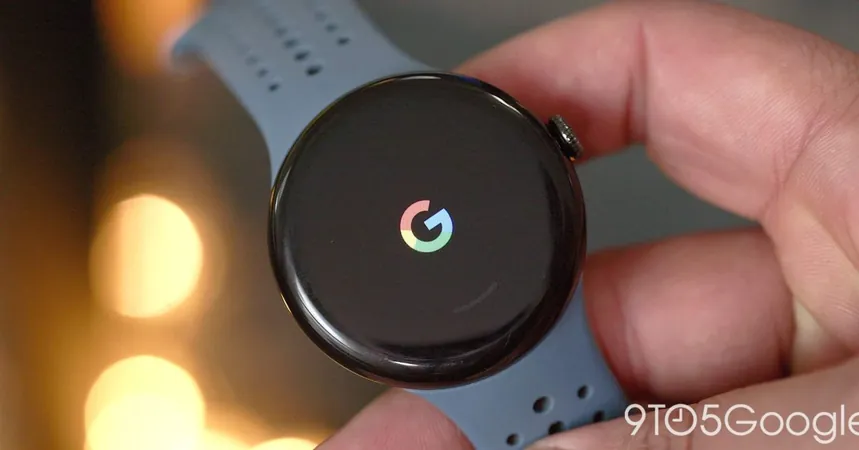
Is Your Loved One Struggling to Find Words? This Could Be a Sign of Cognitive Decline!
2025-07-05
Author: Chun
Imagine sharing a cup of coffee with your grandmother, and suddenly she pauses, muttering, "Oh, what's the word I'm searching for?" This frustrating moment, known as word-finding difficulty (WFD), is often one of the earliest signs that the brain might be aging, long before the onset of gray hair or reading glasses.
The Silent Cues of Cognitive Change
These hesitant pauses can occur anywhere—from grocery store aisles to family celebrations—and can be crucial clues to clinicians trying to identify early signs of memory decline. In fact, recent findings suggest that such difficulties aren't just a mere annoyance; they can indicate deeper issues related to cognitive health.
Unpacking Word-Finding Difficulty (WFD)
Research from the University of Toronto and Baycrest Health Sciences has shown that WFD may be linked to the same neural pathways that deteriorate in Alzheimer’s disease. Interestingly, slower speech patterns may correlate more closely with overall cognitive health than occasional lapses in memory.
More shockingly, studies have shown that adults who maintain fluent speech are likely to have longer lives compared to those whose conversations become hesitant. So, what causes these word-finding woes?
Three Theories Behind the Trouble
Scientists propose three main theories to explain WFD. The first, the processing speed theory, likens an aging brain to a sluggish laptop, taking longer to retrieve information. The second, known as the inhibition deficit hypothesis, suggests that older adults find it harder to suppress irrelevant thoughts, causing mental traffic jams.
The third theory, the transmission deficit hypothesis, posits that as we age, the connection between concepts and the words that represent them weakens. This disconnection makes it more difficult to articulate thoughts, even though comprehension remains intact.
Exploring the Connection Through Experiments
To examine these theories, researchers are using picture-word interference tasks. In these experiments, participants are shown an image—like a dog—while a word flashes, and their reaction time is measured. This setup allows scientists to distinguish between semantic (meaning) and phonological (sound) processing in ways traditional conversation cannot.
Key Findings from a Study with 125 Adults
In a notable study involving 125 adults aged 18 to 85, researchers observed that older individuals showed significant delays in response times when asked to name a dog while exposed to the word "cat." This matched predictions of the transmission deficit hypothesis.
However, when researchers analyzed their speech in real-life situations, they found that overall reaction speed—not just specific slowdown—was the best predictor of WFD. This suggests that monitoring the speed of overall verbal processing could be a more effective way to catch cognitive decline early.
Importance of Talking Speed
Subsequent studies showed that the rhythm of everyday conversations is an indicator of cognitive vitality. People who speak slower often perform worse on tasks that require planning and focus. Crucially, it turns out that a momentary pause in the search for a word is normal, but a gradual decrease in speech fluidity could be a troubling sign.
The Future of Early Detection
The engaging picture-word tasks offer a way to detect subtle shifts in cognitive function before impairment becomes evident. Combining speed and accuracy, they may surpass traditional methods for identifying risk early on. Plus, advances in speech analysis technology can flag changes in verbal tempo even before we notice them.
Encouragingly, maintaining conversational habits like storytelling, playing word games, and even learning new languages keeps our neural pathways active. Just as daily exercise benefits the heart, lively discussions boost brain health. So next time a loved one struggles for a word, remember that sometimes the right one just needs a little time to surface.




 Brasil (PT)
Brasil (PT)
 Canada (EN)
Canada (EN)
 Chile (ES)
Chile (ES)
 Česko (CS)
Česko (CS)
 대한민국 (KO)
대한민국 (KO)
 España (ES)
España (ES)
 France (FR)
France (FR)
 Hong Kong (EN)
Hong Kong (EN)
 Italia (IT)
Italia (IT)
 日本 (JA)
日本 (JA)
 Magyarország (HU)
Magyarország (HU)
 Norge (NO)
Norge (NO)
 Polska (PL)
Polska (PL)
 Schweiz (DE)
Schweiz (DE)
 Singapore (EN)
Singapore (EN)
 Sverige (SV)
Sverige (SV)
 Suomi (FI)
Suomi (FI)
 Türkiye (TR)
Türkiye (TR)
 الإمارات العربية المتحدة (AR)
الإمارات العربية المتحدة (AR)